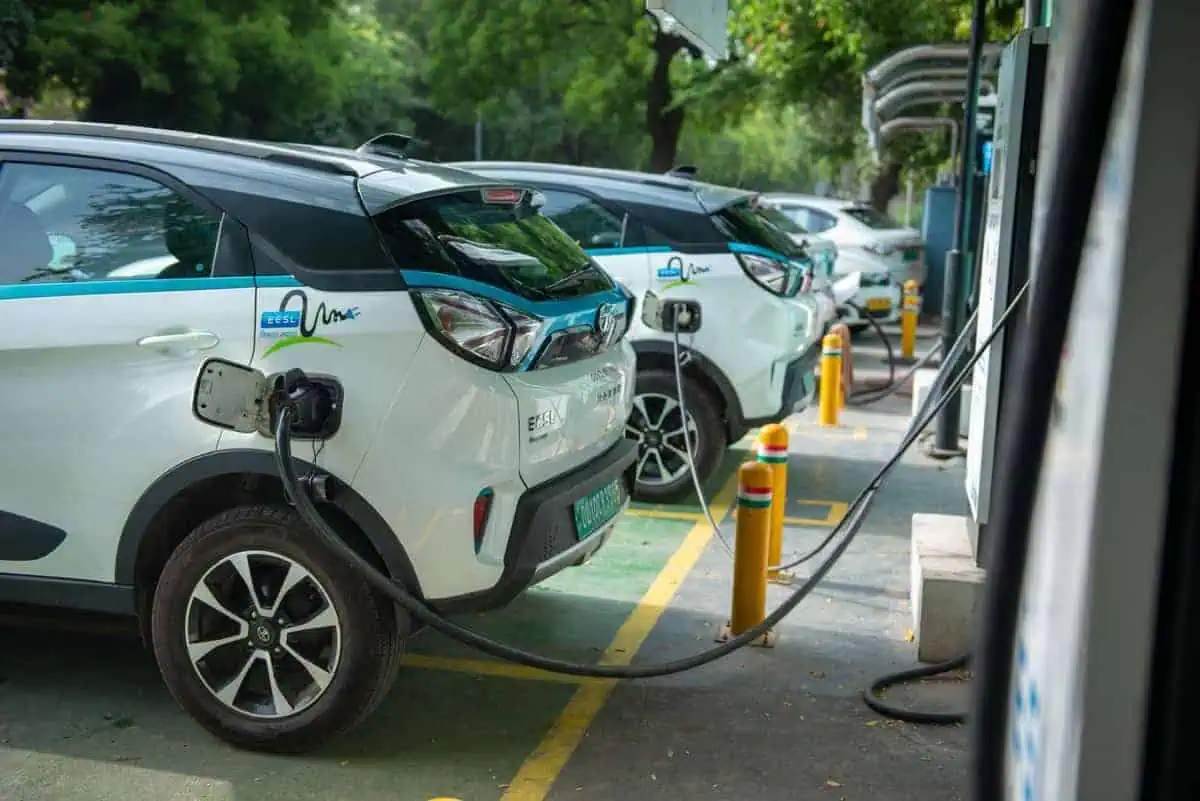India reported a significant development in its electric vehicle industry in the first six months of 2023. EV sales in the country apparently surpassed the 700,000-unit mark from January to June, Autocar Professional reports citing Vahan’s latest data.
To be exact, the total EV sales in that period were 721,971 units, reflecting a whopping 73% of India EV Inc’s record sales in FY 2022. It is also worth noting that the country hit the one-million-threshold of 1,024,739 EVs for the first time last year, representing a 210% YoY growth.
Electric two- and three-wheelers dominate the market
As per the data, electric two- and three-wheelers primarily boosted the country’s EV sales in H1 2023. This result is not surprising, given that these two vehicle types are the most affordable options in the market.
Electric two-wheelers dominated the EV market with a substantial share of 60% and sales of 434,914 units in H1 2023. As per the data, Ola Electric led the segment with sales of 17,552 units and a market share of 38%. TVS Motor Co followed it with 7,791 iQube e-scooters sales in June.
On the other hand, three-wheelers captured 34% of the market, with 246,270 unit sales. In this segment, Mahindra Last Mile Mobility (MLMM) led with sales of 23,112 units in H1 2022. YC Electric Vehicles ranked second with 17,506 sales in the same period.
The other 5.31% of the market represented electric cars and SUVs, with 38,359 units sold. Tata Motors led this sub-segment with 29,453 sales from January to June. MG Motor India landed second with 3,215 sales, significantly lower than the market leader.
Commercial vehicles, including goods carriers and buses, held 0.28% of the market with sales of 2,079 units. Tata Motors also gained the top spot selling goods carriers with 418 units. BYD India followed it by a significant margin with 225 sales.
Unsurprisingly, the Indian auto giant has once again led the electric bus sub-segment with sales of 250 units. PMI Electro Mobility Solutions followed it with 190 unit sales.
The report also indicated that the EV market enjoyed a substantial boost of more than 150,000 units in May alone.
Subsidy reduction pulls two-wheeler EV sales, but the overall market demonstrates maturity
Despite the significant growth, the Indian EV market still reported a sharp drop of 56% in its two-wheeler sales in June due to the government’s reduction in the FAME II subsidy.
In effect, e-scooters and e-motorcycles prices hiked from June 1. In this sense, two-wheeler EV sales reported an 11-month low of 45,734 units in June.
Interestingly, the market demonstrated a sense of maturity despite the sharp decline. Indian buyers apparently purchased higher-priced e-two-wheelers in this period.
Furthermore, June also saw the Indian EV market record its ninth consecutive month of topping 100,000 unit sales. However, last month’s results recorded the lowest, with only 101,832 unit sales. As mentioned, the decline is primarily due to the recent FAME II subsidy reduction.
See Also:
· US-India JV commits $1.5B to establish solar manufacturing plants in the US
· Renault India to launch its maiden EV by 2025
· Tesla partners with Oneida Indian Nation for its first Upstate New York sales showroom
· Zypp Electric announced plans to launch 200k EVs in India
· Uber to deploy 25,000 EVs in India
The Indian EV market continues to demonstrate its strong potential to compete in the global market, with electric two- and three-wheelers driving the majority of sales.
Notably, the country’s significant development in the EV industry aligns with its goal of having EVs account for 30% of its new vehicle sales by 2030.
India can possibly hit this target considering the government’s commitment to promoting the widespread adoption of electric mobility.






